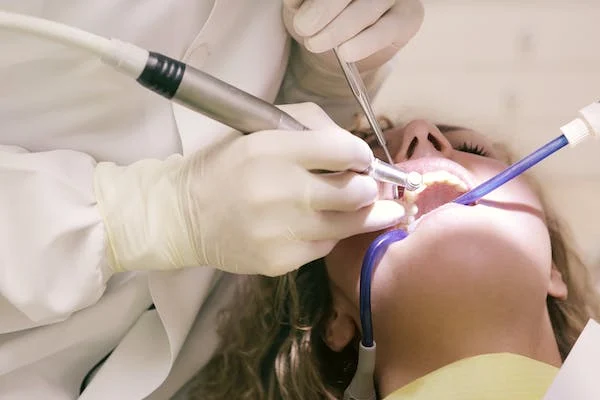Hypodontia, a condition where one or more teeth are missing from the dental arch, can significantly impact a person’s oral health and self-esteem. Understanding the causes and effects of hypodontia is crucial for those seeking effective treatment options.
Among the various solutions available, dental implants offer a promising approach to restoring missing teeth. This blog explores the causes of hypodontia, how dental implants address this issue, their affordability, and the long-term benefits of choosing them for treatment.
What Are The Causes Of Hypodontia And How Does It Affect Oral Health?
Hypodontia is a condition where individuals have fewer teeth than expected, and its origins can be traced to both genetic and environmental factors. Understanding these causes is essential for managing the condition effectively.
Genetic Factors
- Genetic Predisposition: Hypodontia often runs in families, indicating a genetic component. Certain genes play a crucial role in tooth development, and mutations or abnormalities in these genes can lead to the condition.
- Ectodermal Dysplasia: This genetic disorder affects the development of teeth, hair, and sweat glands. Individuals with ectodermal dysplasia may have missing teeth or malformed teeth, contributing to hypodontia.
Environmental Factors
- Trauma: Physical injuries to the mouth or jaw during crucial stages of tooth development can lead to missing teeth.
- Infections: Severe infections during childhood, especially those affecting the gums or developing teeth, can disrupt normal tooth formation and result in hypodontia.
Effects on Oral Health
- Chewing and Speaking Difficulties: Missing teeth can make it challenging to chew food properly and speak clearly. This can impact nutrition and communication, affecting overall quality of life.
- Misalignment of Remaining Teeth: The gaps left by missing teeth can cause adjacent teeth to shift out of their proper positions. This misalignment can lead to bite problems, such as overbite or underbite, and exacerbate dental issues.
- Increased Risk of Dental Problems: The empty spaces from missing teeth can make it harder to maintain oral hygiene, raising the risk of cavities and gum disease. Food particles and plaque can accumulate in these areas, leading to further complications.
Addressing hypodontia early is crucial for maintaining optimal oral health and preventing these associated issues. Consulting with a dental professional can help in managing the condition effectively and exploring suitable treatment options.
How Do Dental Implants Provide A Solution For Hypodontia?
Dental implants offer a reliable and effective solution for individuals with hypodontia. Unlike traditional dentures or bridges, which rely on neighboring teeth for support, dental implants are anchored directly into the jawbone.
This process involves placing a titanium post into the bone, which acts as a replacement root for the missing tooth. Once the implant integrates with the bone—a process known as osseointegration—a crown is placed on top, replicating the natural tooth in both function and appearance.
The preservation of the mandible is one of the most significant benefits of dental implants. The removal of teeth may eventually cause the underlying bone to degenerate. By stimulating the bone, implants stop bone loss and maintain facial structure.
Furthermore, dental implants provide a permanent and stable solution, thereby obviating the necessity for removable appliances and the resulting discomfort. Implants can be customized to meet the unique requirements of each patient, guaranteeing a comfortable and precise fit.
Are Dental Implants An Affordable Option For Replacing Missing Teeth?
The cost of dental implants has been a concern for many seeking solutions for missing teeth. While implants can be more expensive upfront compared to other options like dentures or bridges, they offer long-term value that can make them a cost-effective choice. Implants are designed to be durable and long-lasting, often outlasting other dental restoration methods. This longevity can offset the initial investment, as implants typically require fewer replacements or adjustments over time.
A lot of dental offices also offer payment plans or financing choices to make implants easier for people to get. Dental implants are becoming more and more covered by insurance, but it varies by plan and company. Going to see a dentist is a good idea to learn about your choices and see what kinds of financial help might be available. When you think about the long-term benefits and possible cost savings from less upkeep and replacements, dental implants may be a good choice for your oral health.
What Are The Long-term Benefits Of Choosing Dental Implants For Hypodontia Treatment?
The long-term benefits of dental implants extend beyond mere aesthetics and functionality. Implants provide a permanent solution that helps preserve oral health and overall well-being. One of the most notable benefits is the prevention of bone loss. Unlike other dental restorations that may not adequately support the jawbone, implants integrate with the bone and stimulate its growth, maintaining facial structure and preventing the sunken appearance often associated with missing teeth.
Furthermore, dental implants offer enhanced comfort and convenience. They eliminate the need for removable appliances, which can be cumbersome and require regular cleaning. Implants function like natural teeth, allowing individuals to eat, speak, and smile with confidence. They also have a high success rate, with many patients enjoying their implants for decades with proper care.
In addition to functional and aesthetic benefits, dental implants contribute to better oral health by reducing the risk of further dental issues. The stability provided by implants prevents the shifting of remaining teeth, reducing the likelihood of bite problems and associated discomfort. Regular dental check-ups and good oral hygiene practices will ensure the longevity and effectiveness of dental implants.
For those dealing with hypodontia, dental implants present an effective and durable solution. By addressing the root causes of tooth loss and providing a long-lasting restoration, implants can significantly improve quality of life. While the initial cost may be a consideration, the benefits of implants, including bone preservation, comfort, and overall oral health, make them a valuable investment in dental care.
Why Cascade Dental Is Your Best Choice for Dental Implants
At Cascade Dental, we understand that dealing with hypodontia and missing teeth can be challenging, both physically and emotionally. Superior service and individualized attention are our top priorities, and we’re committed to meeting your requirements in every way. When it comes to dental implantology, we use cutting-edge technology and methods to guarantee the best possible outcomes and complete patient satisfaction.
Your oral health, way of life, and aesthetic preferences are all carefully considered by our skilled dentists as they collaborate with you to create a personalized treatment plan. Providing a caring and supportive environment, we will see to it that you are comfortable and informed every step of the way, from your first consultation all the way through to the fitting of your dental implants.
Furthermore, at Cascade Dental, we prioritize affordability without compromising on quality. To ensure that dental implants are accessible to a wider range of patients, we cooperate with a number of insurance companies and provide convenient payment plans. Restoring your smile, along with your self-esteem and general well-being, is our first priority. With Cascade Dental, you can trust that you’re receiving exceptional care and lasting results.
FAQs About Dental Implants for Hypodontia
How Much Do Dental Implants Cost?
A variety of factors, such as the intricacy of the case, the number of implants required, and the location of the dental office, might affect the cost of dental implants. Generally, a single dental implant can range from $3,000 to $4,500. This price often includes the implant, abutment, and crown. While this might seem like a significant investment, many patients find that the benefits of dental implants, such as durability and natural appearance, make them a worthwhile option.
Are There Financing Options Available for Dental Implants?
Yes, Cascade Dental does offer a number of payment plans to help make getting dental implants easier. The price of treatment can be a worry for some, so we help our customers find a payment plan that works for them. Additionally, we accept various insurance plans that may cover a portion of the cost. Our team is here to guide you through the financial aspects and ensure you can achieve the smile you deserve without unnecessary stress.
How Long Do Dental Implants Last?
Implants in the teeth are known for lasting a long time. Implants can last 20 years or more with good care, and in some cases they can last a lifetime. In the long run, this makes them a more cost-effective way to replace missing teeth than other choices. To make sure your implants last as long as possible, you should get regular checkups with your dentist and take care of your teeth.
Are Dental Implants Painful?
Getting dental implants is actually quite painless, according to most patients. The procedure is performed under local anesthesia, so you won’t feel any discomfort during the placement of the implant. Post-procedure, some mild soreness and swelling are normal but manageable with over-the-counter pain medication. Cascade Dental will make sure you have a smooth recovery by giving you complete aftercare recommendations.
Eager to Transform Your Smile and Boost Your Confidence?
If you’re ready to take the next step toward addressing hypodontia and exploring the benefits of dental implants, contact us at Cascade Dental. Our friendly and professional team is here to help you achieve a healthy, beautiful smile. Call us today to schedule your consultation and discover how we can make dental implants a reality for you!
Schedule Your Consultation Today!



